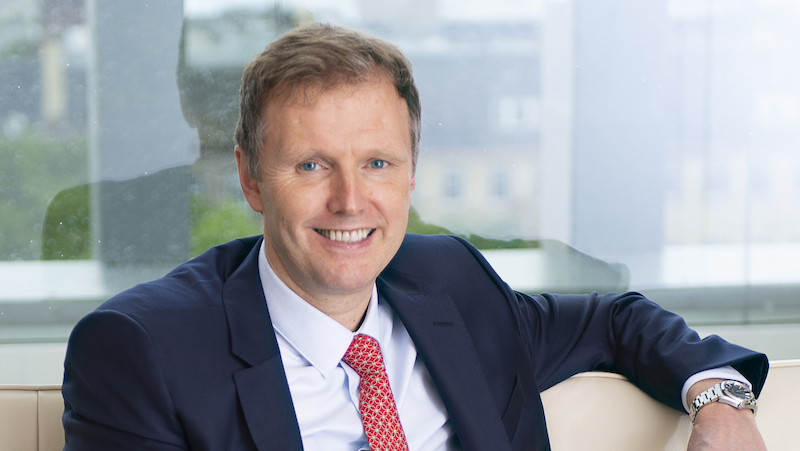Profits for Abrdn’s investment arm have fallen by 66% and fund flows have dropped by 83% year-on-year, according to the firm’s H1 2023 results.
However, the firm’s acquisition of Interactive Investor in May last year has significantly bolstered the performance of its adviser arm, while its adviser business saw a 12% uptick in revenue.
Since the results were published at 7am today (8 August), Abrdn’s share price has fallen by 10.1%.
Investment
Within Abrdn’s investment arm, net operating revenue has fallen by 14.7% compared to H1 last year – despite adjusted operating expenses decreasing from £470m to £440m. This was the result of net outflows, lacklustre investment performance and changes the firm’s “asset mix”.
Adjusted operating profit slumped by 66% from £76m to £26m, with the firm’s cost-to-income ratio increasing from 86% to 94%.
Assets under management dipped slightly by 2.3%, from £376.1bn to £367.6bn. While gross flows during H1 of this year increased overall from £25.4bn to £27bn, a 6.3% increase, net flows tumbled by an eye-watering 82.6% from £37.3bn to £6.5bn.
When it comes to Abrdn’s funds’ returns, only 38% of equity mandates outperformed their respective benchmarks over three years to the end of June 2023, compared to 63% outperforming up until the end of 2022. Abrdn said this was partially due to “volatile returns experienced through the Covid pandemic months of 2020”. Equity funds fared better over a one-year time frame, however, with 40% of vehicles outperforming relative to 30% to the end of 2022.
Abrdn said this improved performance was driven by its Global Emerging Markets range and its Global Quality strategy, as well as its Europe, US and global small-cap mandates.
The funds that have suffered the most over the last year were real asset portfolios, with just 25% outperforming compared to 57% to the end of 2022. The firm attributes this to higher interest rates.
Multi-asset fund performance has also struggled during H1 2023, with only 10% outperforming their respective benchmarks. Abrdn said this was largely due to defensively-positioned absolute return mandates underperforming, with the firm announcing its once-behemoth Abrdn GARS fund would be rolled into its Diversified Assets suite last month. Abrdn also announced the impending closure of three more absolute return funds later in the year amid a raft of further changes to its multi-asset stable of funds.
In contrast, 87% of Abrdn’s quant-based strategies outperformed over one year to the end of June 2023, compared to 17% over 12 months to the end of 2022.
“Over the longer term, five-year performance remains robust and we continue to take actions to improve investment performance which is key for client outcomes across asset classes,” the firm said. “These include the appointment of Peter Branner as CIO to further support and enhance our investment processes and capabilities.”
Adviser Arm
Abrdn’s adviser arm fared better in terms of profits, with revenue increasing by 12% from £92m to £103m. Adjusted operating profit increased from £38m in H1 2022 to £49m (a 29% uptick), while assets under management increased by 5%. This does however include Abrdn’s MPS business, which was folded from the firm’s personal vector, into the adviser vector, in May this year.
The advisory business saw net outflows of £0.6bn compared to £1.4bn inflows in H1 2022, which Abrdn said was due to “market conditions” and “customer behaviours in response to the increased cost of living”.
Interactive Investor
Abrdn’s purchase of Interactive Investor has “transformed” Abrdn’s personal arm of the business, according to the firm, with pre-tax profit increasing by 52.5% from £99m to £151m, adjusted operating profit rising from £115m to £127m (a 10.4% uptick) and net operating revenue increasing by 3.6% from £696m to £721m year-on-year.
When taking Interactive Investor as a lone entity, it has increased in profit by 53% from £75m to £115m.
“Based on the first full 12 months of ownership, the £1.5bn purchase price represents a multiple of 15 times post tax adjusted earnings,” Abrdn said. “We see a number of opportunities for growth… including; greater SIPP penetration, new services, an increased focus on brand and marketing and greater synergies across the personal business. Combined, we believe we are looking at a very exciting proposition.”
Overall performance
In aggregate, Abrdrn’s net revenue increased by 4% from £696m to £721m year-on-year, while operating profit ticked up by 10% to £127m. Assets under management and advice increased by 1% to £495.7bn, while the average investment outperformance fell by seven percentage points to 58%.
CEO Stephen Bird (pictured) said: “We continued to move at pace to execute our strategy over the first six months of 2023 in a challenging macro environment. Thanks to Abrdn’s revenue diversification and the resilience we have built into our business with the acquisition of interactive investor last year, we grew revenue by 4% and adjusted operating profit by 10% over the period.”
On the investment side, he said 2023 is “shaping up to be equally as challenging” as 2022, which he described as “one of the hardest investing years in living memory”.
“Geopolitical risk is back. Inflation is back. Credit risk is back. The changing dynamics and challenges within traditional asset management are well known – the relentless rise of passive and index investing, democratisation of technology and finance and the faster growth of alternatives are all ongoing themes,” Bird explained.
“We have been reshaping the business to take account of these factors, although in investments we still have further to go… As part of our work to address the level of profitability in the investments business, comprehensive efforts to improve the operating margin are ongoing.”
–
PA event: The Watchlist, September 7th | RSVP HERE
Hosted at the Soho Hotel.
This event will explore the latest trends and strategies on Portfolio Advisers’ radar. It will provide an opportunity to gain unique perspectives on up-and-coming funds.
Sponsors include Goldman Sachs Asset Management, J Sarfra Sarasin, Munich & Co, Oldfield Partners, Premier Miton, Trium Capital and SVM Asset Management.










